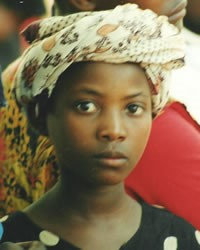The Pare are a Bantu ethnic group living in northeastern Tanzania, primarily in the Pare Mountains of Kilimanjaro Region, including the Mwanga and Same districts. They are part of the Bantu Central-East people cluster within the Sub-Saharan African affinity bloc. The Pare are known for their strong cultural identity, oral traditions, and historical involvement in regional trade and ironworking. Though modern influences have reached their communities, the Asu continue to preserve many aspects of their traditional way of life.The Pare speak Asu (also known as Chasu), a Bantu language native to their region. Historically, the Pare were divided into two subgroups: the southern Pare (Vuasu) and the northern Pare (Vughonu), each with distinct dialects and cultural practices. The name "Pare" may have originated from neighboring groups referring to the southern peaks of the Pare Mountains. The Pare were once prominent iron producers, supplying tools and weapons to neighboring communities such as the Chaga and Maasai. Their historical homeland also lay along key trade routes connecting the East African interior to the Indian Ocean coast.
Pare communities are mainly rural and rely on agriculture for their livelihoods. They cultivate crops such as bananas, maize, beans, and cassava, often employing terraced farming techniques that are well-suited to the mountainous terrain. Livestock keeping is also common. Social life is organized around extended families and clan systems, with elders playing a crucial role in decision-making. Traditional ceremonies, music, and dance remain integral to community life. While access to education and healthcare has improved in recent years, many Pare villages still face challenges related to infrastructure and economic development.
Islam is the dominant religion among the Pare, with a significant portion of the population identifying as Sunni Muslim. Christianity is also present, particularly Roman Catholicism and mainline Protestant denominations. However, evangelical Christianity remains a minority. Traditional beliefs, including ancestor veneration and nature-based rituals, continue to influence spiritual practices, especially in rural areas. Syncretism is common, with Islamic or Christian practices often blended with indigenous customs.
The Pare need access to clear and culturally relevant presentations of the gospel. While Bible translations and the JESUS Film are available in Asu, there is a lack of trained local leaders to disciple believers and guide spiritual growth. Many who identify as Christian or Muslim have only a superficial understanding of their faith. Discipleship programs, oral Bible storytelling, and community-based teaching could help deepen engagement with Scripture. Additionally, holistic development efforts—such as education, healthcare, and clean water—would support both physical and spiritual transformation.
Pray for the strengthening of gospel outreach among the Pare—especially in rural areas—that God would raise up local believers to lead their communities in biblical truth and spiritual renewal.Ask for discernment among those who blend traditional beliefs with Islam or Christianity, that they may fully embrace the gospel.Pray for the Holy Spirit to equip and send Pare Christian workers to the unreached parts of Africa.
Scripture Prayers for the Pare, Asu in Tanzania.
AI generated by CopilotPeopleGroups.org: Pare ProfileWikipedia: Pare People
| Profile Source: Joshua Project |










